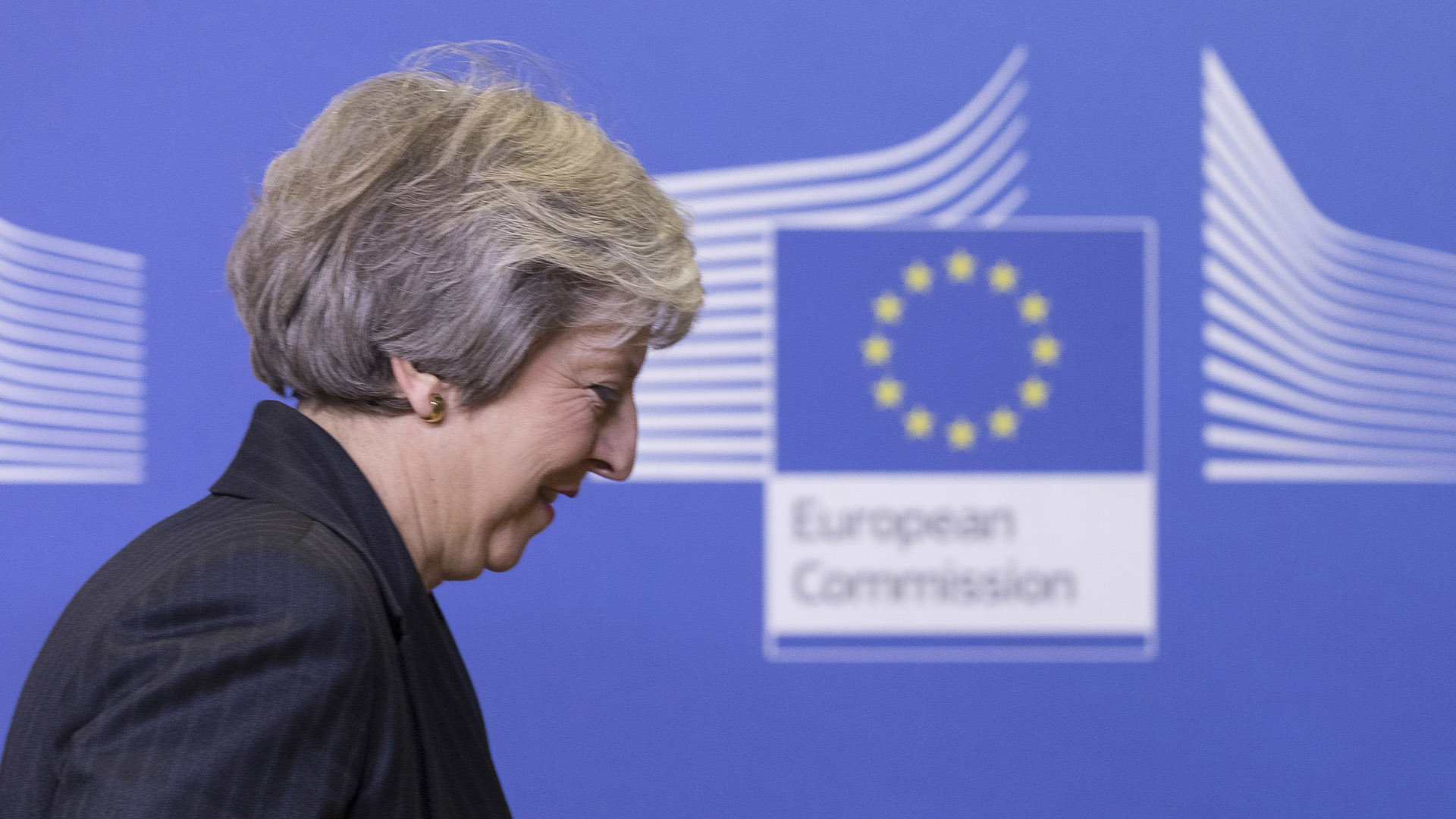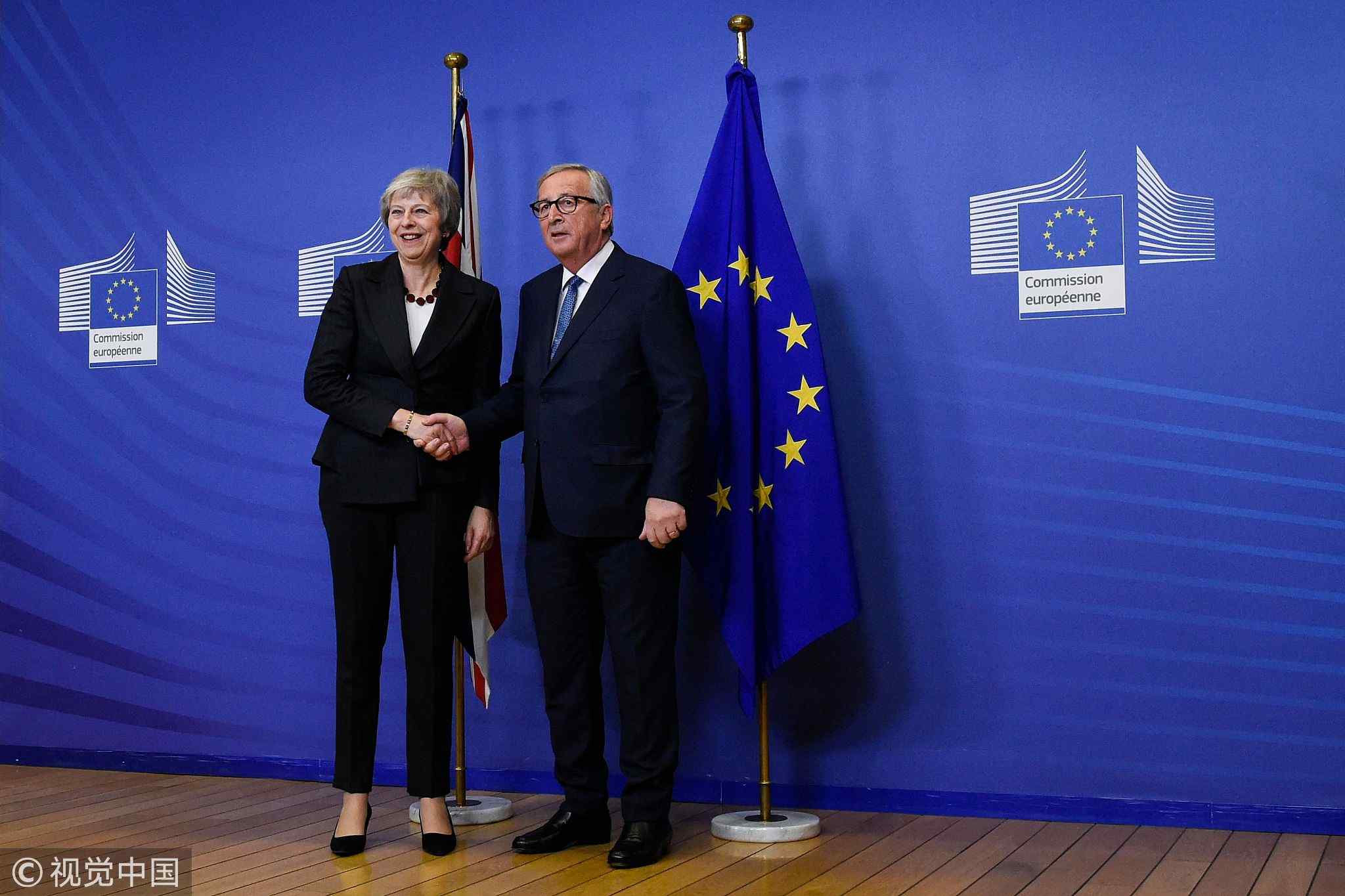
World
10:53, 23-Nov-2018
What's in store for the UK's divorce with the EU?
Updated
10:15, 26-Nov-2018
By Zheng Weiyu
05:12

UK Prime Minister Theresa May's busy week of Brexit negotiations continues. And now May faces domestic and international pressure.
Earlier, CGTN's Global Watch was joined in the studio by Cui Hongjian, director of the Department of European Studies from the China Institute of International Studies. He talked about the sticking points that hinder Brexit and analyzed the most likely scenarios.

European Commission President Jean-Claude Juncker (R) shakes hands with UK Prime Minister Theresa May during a meeting at the EU Headquarters in Brussels, November 21, 2018. /VCG Photo
European Commission President Jean-Claude Juncker (R) shakes hands with UK Prime Minister Theresa May during a meeting at the EU Headquarters in Brussels, November 21, 2018. /VCG Photo
Cui said there remain multiple sticking points including a "break-up" fee, trade issues, and the settlement of people and so on. Among those issues, the most challenging one is the Irish border conundrum. Unlike those of trade or people, the Irish border issue deals with sovereignty, complicating exit plans.
Now the major problem is how May will lead her own party and the parliament to deal with the challenges, Cui noted, assuming that Sunday's summit will be a good time for both sides to reach consensus. Cui added that if the EU is wise enough, it will put the easy deals in the first part and put other hanging issues in the second part of the negotiation.
In addition, Cui thought Germany would probably say yes to the deals, which would be in the interests of Berlin. Germany can then take advantage in its exports to other EU member states and a close relationship with the UK benefits Germany in trade as well. While he said it's still possible that Merkel might not agree with May, Sunday's summit will at least open a way that satisfies most EU member states.

SITEMAP
Copyright © 2018 CGTN. Beijing ICP prepared NO.16065310-3
Copyright © 2018 CGTN. Beijing ICP prepared NO.16065310-3